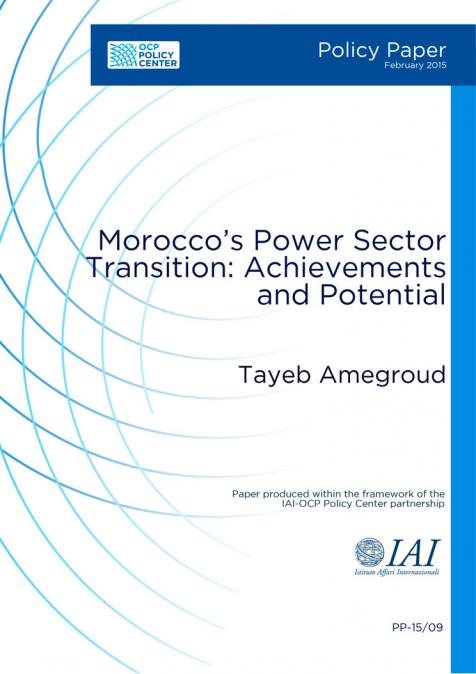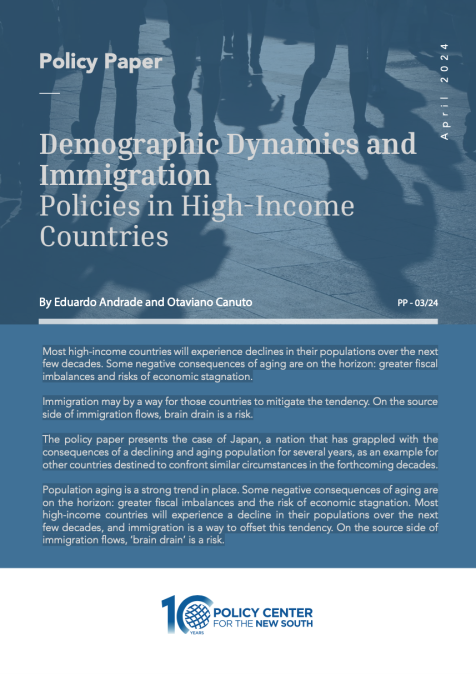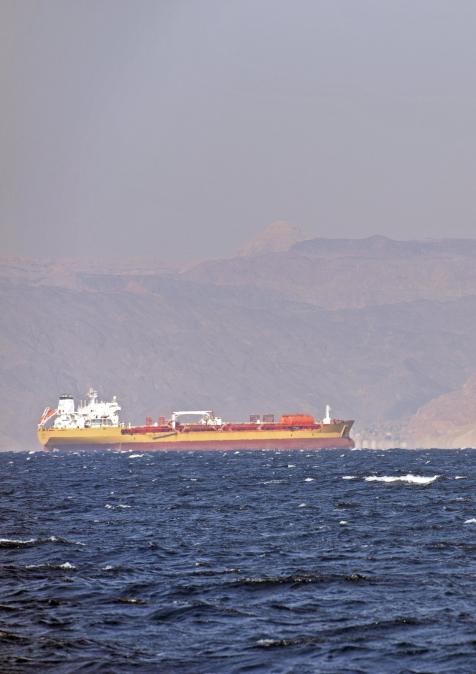Publications /
Policy Paper
As the only North African country with no own oil resources, Morocco is the largest energy importer in the region. The country is faced with the hallenging task of meeting rising local demand while keeping its import bill under control. Against this backdrop, Morocco is pursuing an ambitious, cost-effective energy transition aimed at endowing the country with a sustainable, competitive and secure energy sector. This paper assesses the achievements and constraints facing the Moroccan energy system with a focus on the power sector, which is responsible for the transformation or production of more than half of the country’s primary energy. It also dwells on existing policies aimed at integrating the Moroccan energy market into the regional and Euro-Mediterranean energy systems by exploiting its strategic position at the crossroads between the Atlantic Ocean and the Mediterranean Sea.
This Policy Paper was produced within the framework of the IAI-OCP Policy Center partnership and presented at the international seminar entitled “Morocco's Role in Fostering Euro-Mediterranean Energy Cooperation” organized in Rabat on 26 September 2014. The first draft of the paper was written in September 2014.









